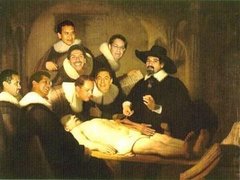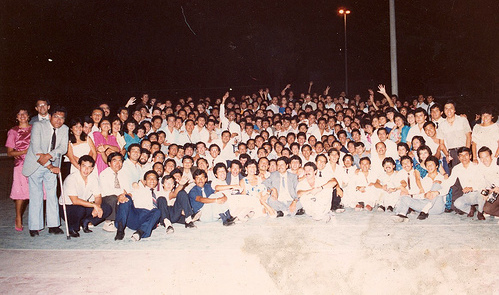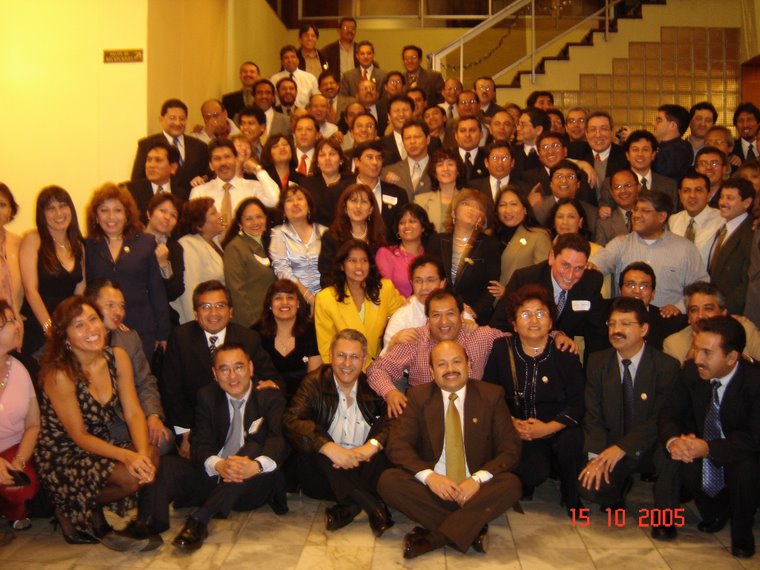A Doctor blogs about his decline as Alzheimer’s claims his mind
(Un medico narra en una Bitacora su declive a medida que la Enfermedad de Alzheimer destruye su mente)
In a rented car on a rural road, David Hilfiker glanced at the Google map he printed before leaving his District apartment and turned where it said to turn. The retired doctor drove this way for three and a half hours, eyes darting between paper and pavement, trying not to get lost.
Nothing about the trip felt familiar. Not the tree-framed scenery outside his window. Not the sand- colored prison where he eventually stopped, or the visitor’s room where he sat with an old friend. Not the chaplain who came by to say hello. Hilfiker, a gray-haired man with a charmingly tilted smile, introduced himself.
“Yes,” the chaplain told him, “I remember you from last time.”
Hilfiker had driven to the Buckingham Correctional Center in Dillwyn, Va., just a few months earlier. There, he had sat in the same visitor’s room with the same friend for four hours.
Hilfiker remembered none of it.
At the time, he dismissed the incident as a bizarre memory lapse, perhaps a byproduct of his age, then 66. But now, two and a half years later, he recognizes it for what it was: one of the first major signs of his mind’s decline. Hilfiker has Alzheimer’s, a brain disease expected to afflict a record 14 million Americans by 2050, inflicting a terrible emotional and economic toll on communities, families, and the men and women who learn that their memories and identities will slowly be lost. For Hilfiker, a family doctor who has spent decades helping the District’s most vulnerable, that moment came six months ago.
Since then, he has grappled with how to tell those around him, when to let go of responsibilities and, as a man who has always defined himself by his mind, who he will be when it’s gone. He has also taken the unusual step of chronicling his demise in a blog titled “Watching the Lights Go Out,” providing a sobering guide for the millions headed behind him into the darkness.
“I’m facing the collapse of so much of what has given me meaning,” he wrote in one of his early posts. “What is it actually going to be like?”
Three decades ago, Hilfiker stepped into an exam room and found a worried man and his wife waiting for him.
“Something’s wrong with Mama,” the man said.
A quick look at Mama revealed that her mind had been slipping away long before her husband had sought help.
“We humans have amazing denial mechanisms, of course, but why are they almost universally so powerful in dementia?” Hilfiker blogged. “It’s shame and fear, I suspect; shame so strong that one can’t bear to entertain the possibility and fear of isolation so overwhelming that telling others . . . terrifies us.”
In many ways, Hilfiker’s entire life has prepared him to write with ease and expertise about an illness that would leave most people besieged and lost.
He has never been an emotional person. When he found out that his mother committed suicide his sophomore year of college, he cried for two minutes. Years later he pieced together her long struggle with depression, but it would take him years more to recognize that he shared her illness.
If the depression tempered his happiness, it didn’t slow his achievements. The son of a pastor and a nurse, Hilfiker decided early on that success came not only in pushing himself to whatever heights he could reach but also in pulling up others less able with him.
The valedictorian of his high school and a standout at Yale, he didn’t just become a doctor: He set up a practice in a rural town in
Minnesota and then in a low- income area in the District. He wasn’t just the author of three books: He wrote about issues he hoped would help strengthen the medical profession and a divided society.
One of his greatest accomplishments lies inside a gray-brick rowhouse in Northwest Washington. Hilfiker founded Joseph’s House in 1990 for homeless men living with AIDS and envisioned it as a place where the lines between black and white, rich and poor, would be blurred. He moved his wife and three children into the two-story home that counted among its first residents drug addicts and convicted criminals.
Hilfiker’s family lived there for three years, enough time to see about two dozen men die and to grow familiar with the dementia that AIDS patients sometimes develop before death. Even now at the house, which today serves men and women dying of AIDS and cancer, it’s not unusual for a resident to sit at the long dining room table, all personality and laughter, and then months later, carry the vacant stare of one whose thoughts are far away.
Hilfiker wonders how long it will take him to reach that point. Two years? Five years? A decade?
He had noticed mental slips in himself even before the forgotten trip to Virginia. On a train bound for the West Coast, he lost his fanny pack twice. The first time, it was returned without the money; the second time it remained gone. Hilfiker also found himself grasping for words in a way he never had before and struggling to understand an Excel spreadsheet formula he had once created with ease.
When Hilfiker visited a neurologist for the second time in September, he missed three questions on a cognitive test. He shouldn’t have missed any. The one that troubled him most required him to simply draw a three-dimensional cube.
“I couldn’t do it, “ he wrote. “I couldn’t get all the lines to connect. I had administered similar tests to patients before. I knew immediately what this meant. A knot quickly formed in my gut, and I felt almost sick. I realized that my mind was going.”
Hilfiker often navigates the city by bike, but not long after his visit to the neurologist, he found himself in Washington Circle, lost. He had been heading to meet his wife, Marja, at the Kennedy Center, and he must have taken a wrong turn. In the soft light of dusk, he could read the street signs — K Street, I Street — but he couldn’t find New Hampshire Avenue, which was less than 100 feet away. He asked one person for directions, and then another.
“I’m ordinarily good at directions, and I’ve passed through that circle hundreds of times,” he recounted in his blog. “I got lost when there was no reason to get lost.”
The only way to definitively diagnose Alzheimer’s is through a biopsy after death. But Hilfiker said he has accepted that he has the disease and has even joined a clinical trial for it at Georgetown University.
Barring a medical breakthrough, 13.8 million Americans age 65 and older will have Alzheimer’s in 2050, up from the 5 million currently affected, according to a study recently released by the Alzheimer’s Association. The study found that the cost of caring for this population will rise from the current $203 billion to $1.2 trillion.
In its early stages, Alzheimer’s is characterized by memory loss and disorientation, but it can eventually lead to death.
“If I live in the future, it’s a very painful disease,” Hilfiker said one recent afternoon as he sat at his kitchen table in Northwest Washington. “If I live in the present, it’s not.”
In the present, he is still able to hold engaging conversations, teach the interns at Joseph’s House, as he does every year, and go on nightly walks with his wife.
In the future, he will likely end up in a nursing home bed. He might act out with rage. And he may not recognize his wife, even as he comes to rely on her for everything.
One day in November, Hilfiker and his wife went to the Natural History Museum to watch an Imax film on monarch butterflies. Afterward, as they prepared to leave, David became tangled in his jacket. The left sleeve was bunched behind him, just out of reach. Marja noticed and instinctively reached out to help. David pulled away, annoyed.
Marja is a born caretaker. She founded a D.C. school for adults who want to get their GEDs, and for as long as her children can remember, strangers in need have rotated through the family’s home. Currently, a young man with dreams of being a hip-hop artist lives in the couple’s spare room.
But the problem was the jacket, not the Alzheimer’s, Hilfiker thought at the time. He didn’t need her help — not yet.
“What bothered me was thinking that she thought I was helpless when, in fact, I wasn’t,” Hilfiker wrote. “So, it’s going to be a delicate dance in which we both have to offer each other a lot of grace.”
They met in high school when she was a 17-year-old foreign exchange student from Finland and he was a studious 16-year-old New Yorker who carried a briefcase even though no other boys did. They married 44 years ago, and Marja has been with him through the darkest days of his depression.
“If someone had given me three wishes in life, one would have been ‘Just let David enjoy life more,’ ” Marja said. The disease, she added, has now given him that.
Over the past six months, she has witnessed her husband’s mental lapses. He has forgotten appointments. He has introduced himself to people he has already met. And while doing the bookkeeping at church, he calculated an extra $24,000 in the budget that didn’t exist. Blue slips of paper, on which David now notes everything he doesn’t want to forget, stretch from the couple’s kitchen to their bedroom.
Marja has noticed other changes. Her husband has been more emotionally open than ever, even crying tears of joy on a recent Sunday at church.
And he has decided that although he’s “still fun,” he wants to spend more time with their children and grandchildren, none of whom live close. Every summer, the couple go on a hiking trip. This year, they’re planning a family canoe trip.
Marja and David say they know the time will come when they will have to worry about the practical: whether to stay in the non-
handicapped-accessible apartment they love, how they will manage their money in light of nursing home costs that can run more than $100,000 a year, and when it’s time for David to stop driving, riding his bike or even blogging. (When he can no longer write about his own experiences, a friend has agreed to do it for him).
But that’s in the future.
In the present, David boards a train on an afternoon in early March, alone. He will visit his sister in Minneapolis, his son in Seattle and his daughter and grandchildren in Napa, Calif. In the past, he used to feel guilty leaving Washington for even a few weeks. This time, he’ll be gone about a month.
Perhaps this Alzheimer’s is allowing me to enjoy my life for the first time, not because things are any better, but because I’m more emotionally in touch with the goodness,” he wrote. “I feel rooted, grounded. I’m where I’m supposed to be.”
David Hilfiker: A Memoir from Inside Alzheimer's Disease
With his wife, Marja, looking on, David Hilfiker becomes emotional as he offers her communion at the Eighth Day Faith Community in Washington. On his blog, Hilfiker writes that he has become more emotional: Marja “had thought I was crying because I was frustrated from not being able to remember the words.”http://www.washingtonpost.com/













No hay comentarios.:
Publicar un comentario